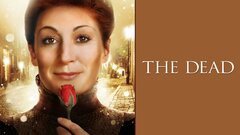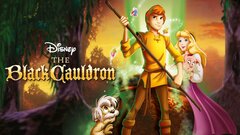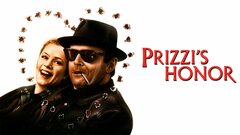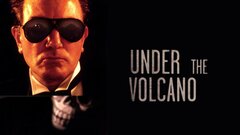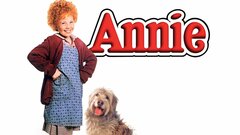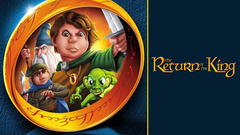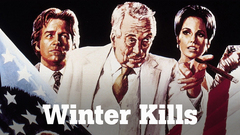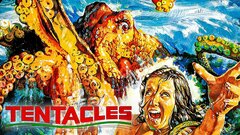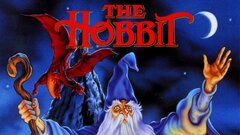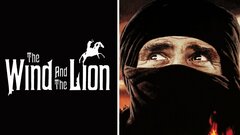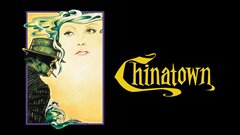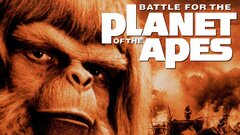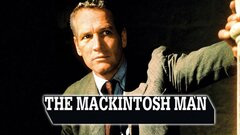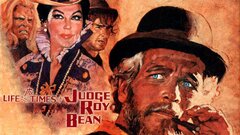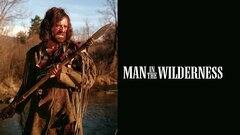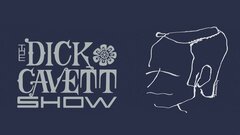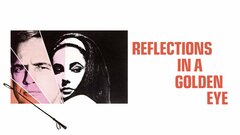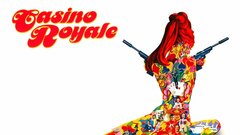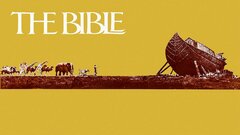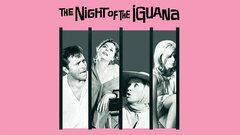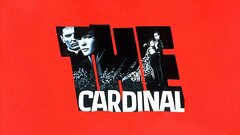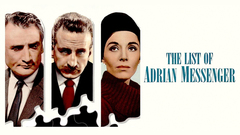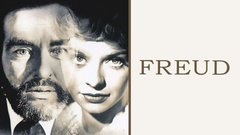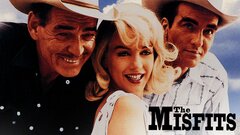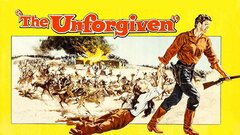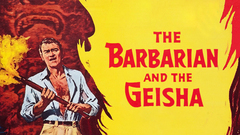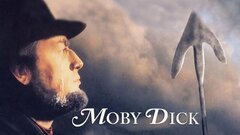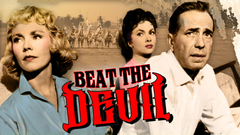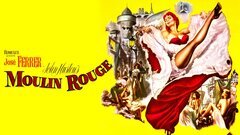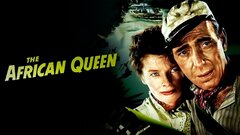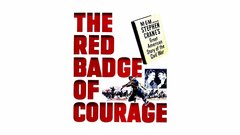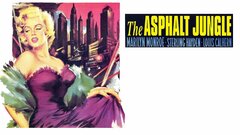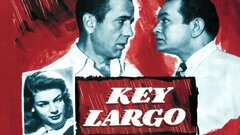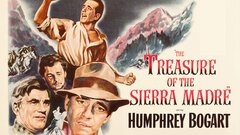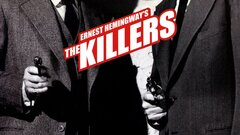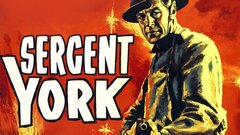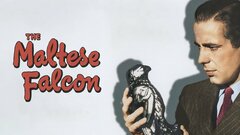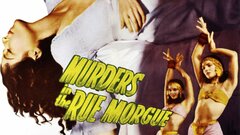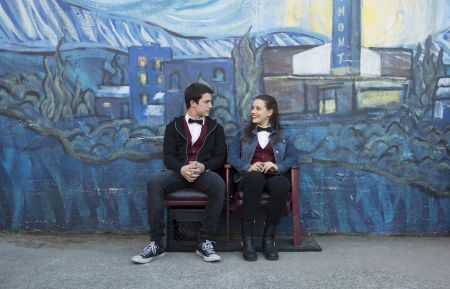Without a doubt one of the most influential, prolific directors of any era, John Huston's reach spanned several decades and numerous film genres that displayed vast imagination while focusing on characters struggling for individuality despite constraints from the world around them.
Huston led quite an adventurous life even before he began his Hollywood career, often recalling his days as a boxer, Mexican cavalry officer, and avid horseback rider in many of his films. After a false start as a screenwriter in the early days of talkies, Huston re-emerged in the late-1930s as a successful contract writer who penned such hits as "The Amazing Dr. Clitterhouse" (1938), "Sergeant York" (1941), and "High Sierra" (1941). During this time, he developed a strong working collaboration with Humphrey Bogart, who became a major star following his turn in Huston's directorial debut, "The Maltese Falcon" (1941), one of the best film noirs ever made. The two had even greater success with "The Treasure of Sierra Madre" (1948), which earned Huston and his father, actor Walter Huston, Academy Awards.
From there, the director entered into what became his most fruitful period, helming such long-held classics as "The Asphalt Jungle" (1950), "The Red Badge of Courage" (1951), and "The African Queen" (1952), which delivered Bogie his only Oscar. He also began acting later in his career, turning in an acclaimed supporting performance in "The Cardinal" (1963) while being best remembered for his portrayal of the vile Noah Cross in "Chinatown" (1974). In the last decade of his life, Huston returned to critical and box office prominence with "Prizzi's Honor" (1985), which earned daughter Anjelica an Academy Award, making the Hustons the first family to win Oscars in three successive generations. As for Huston himself, he left behind a compelling legacy that included an adventurous life and a career that cemented him as arguably the greatest director in Hollywood history.
Born on Aug. 5, 1906 in Nevada, MO, Huston was raised the only child of noted stage and screen star, Walter Huston, and sports journalist and editor Rhea Gore. His parents divorced when he was six years old, forcing Huston to split time between both while receiving his education at various boarding schools. Though his father quit acting to become a civil engineer when his son was born, he soon returned to his craft, allowing the young Huston to spend his summers traveling with his father on the vaudeville circuit. Naturally, he became attracted to the idea of becoming an actor. But Huston developed a number of childhood maladies like an enlarged heart and kidney problems that forced extended bed rest in Arizona before moving to Los Angeles with his mother. He later attended Lincoln Heights High School, where he took up boxing and won the Amateur Lightweight Boxing Championship in California, leading to a semi-professional stint after dropping out of school at 15 years old. He fought in various clubs for five dollars a night until discovering a love for painting, which led to enrollment at the Smith School of Art.
By this time, Huston resumed his boxing career, only to have his nose smashed into his face, forcing an end to that particular ambition. He moved to New York City, where he began performing on stage in 1924 with the Provincetown Players in Greenwich Village. An avid horseback rider, he soon made his way to Mexico in search of a famous trainer and colonel in the army, who gave him an honorary commission, allowing him to ride with the officers. This led to a confrontation with a South African count over a woman that escalated to challenges of a duel that fortunately never materialized. Encouraged to become a writer after receiving an illicit copy of James Joyce's then-banned Ulysses, Huston began writing short stories, having "Fool" accepted by legendary editor H.L. Mencken for his magazine American Mercury in 1929. He followed in his mother's footsteps and became a journalist, writing for the New York Daily Graphic, only to realize he lacked the requisite skills to be a good reporter - proven when he mixed up his notes while writing a murder story and accused the wrong man of the crime.
By this time, Huston had married his first wife and high school sweetheart, Dorothy Harvey, while his stories appeared in the likes of Esquire and The New York Times. Having found some success as a playwright, he was convinced by friend and Broadway director Herman Shumlin to try his hand at Hollywood, leading Huston to move back to Los Angeles, where he became a contract writer for Samuel Goldwyn. His initial Hollywood stint was marred by dissatisfaction, starting with his departure from Goldwyn Studios to Universal Studios after months of landing no assignments. For Universal, he worked on the scripts for "Murders in the Rue Morgue" (1932), an adaptation of the Edgar Allan Poe short story; "Law and Order" (1932), a retelling of the famed shootout at the OK Corral; and "A House Divided" (1932), directed by William Wyler and starring his father, Walter Huston. While spending his days and nights as a wastrel, earning quite a reputation for his drinking and carousing, Huston suddenly found himself in the center of tragedy after striking and killing a female pedestrian in a car accident. Though cleared of any wrongdoing, Huston was nonetheless traumatized by the experience, leading to a personal exile in London, where he spent his days adrift.
Though he had script work lined up in England, the job fell through and spun Huston into a state of poverty that involved sleeping in parks and singing in the streets for his supper. He eventually moved back to the United States, having met his second wife, Lesley Black, and embarked on the second, more elongated phase of his Hollywood career. Determined to become a serious writer, Huston achieved great renown as a contract writer for Warner Bros. It was there that he co-wrote major films like "Jezebel" (1938) with Bette Davis; "The Amazing Dr. Clitterhouse" (1938), starring Edward G. Robinson and Humphrey Bogart; and "Juarez" (1939), a historical epic that Huston latter revealed was ruined by star Paul Muni's insistence that his supporting role be greatly expanded. Huston earned the first of many Academy Award nominations with his co-writing efforts on "Dr. Ehrlich's Magic Bullet" (1940), a biographical drama about the pioneering German scientist Paul Ehrlich (Edward G. Robinson). He earned another Academy Award nod for "Sergeant York" (1941), a biography detailing the storied life of Alvin York (Gary Cooper), the most-decorated soldier from World War I.
It was around this time that Huston - still married to Black - began an extramarital affair with socialite Marietta FitzGerald - herself married to lawyer and later high-ranking CIA officer Desmond FitzGerald. Meanwhile, he wrote the script for "High Sierra" (1941), a gritty crime thriller about a paroled con (Humphrey Bogart) whose early release was arranged in order for him to pull off a big heist. Because the movie was a big hit, Huston - who had it in his contract to be able to direct his next picture - was given the opportunity to step into the director's chair with his choice of material. Huston picked an adaptation of Dashiell Hammett's The Maltese Falcon, which had previously been made into two failed earlier versions by Warner Bros. Also writing the script, Huston kept close to the source material - no surprise due to his long admiration for the author - which starred Bogart as Sam Spade, a hard-boiled, unscrupulous private detective who takes on a case from a Miss Wonderly (Mary Astor) who seeks protection, only to find himself embroiled in an international scheme to find a jewel-encrusted falcon. Though made on a shoestring budget, Huston's version was a huge hit and became the stylistic template for all other film noirs to follow. It also introduced one of the most memorable lines in cinema history - "the stuff that dreams are made of" - while also helping the man who uttered that line, Humphrey Bogart, become the biggest star in Hollywood.
Huston went on to direct two more hits, the melodramatic "In This Our Life" (1942), starring Bette Davis and his new companion Olivia de Havilland, and the spy thriller "Across the Pacific" (1942), with Bogart again in the lead. Like many others in the Hollywood community, Huston put aside career ambitions to become involved in the war effort, earning the rank of captain with the Army Signal Corps and producing groundbreaking documentary work like "Report from the Aleutians" (1943), "The Battle of San Pietro" (1944), and "Let There Be Light" (1945); the last being an account of psychological dysfunction among American G.I.
s which federal authorities withheld from release until 1981. Returning to Hollywood once the war was over, Huston embarked on the most fruitful and significant portion of his career. From 1948-1952, he produced a succession of important films that went on to become cinematic classics long admired by later generations. First was "The Treasure of the Sierra Madre" (1948), which starred Bogart as a down-and-out drifter who - along with his fellow destitute compatriot (Tim Holt) - gets pulled into prospecting for gold by a seemingly crazy old man (Walter Huston), only to find himself increasingly paranoid and distrustful of his two companions. A morality tale on the evil men cause in pursuit of riches, "The Treasure of the Sierra Madre" became an instant classic, earning Huston Academy Awards for writing and directing, and a Best Supporting Actor Oscar for his father.
With his next film, "Key Largo" (1948), Huston further defined the film noir with its cynical and world-weary hero, an embittered war veteran (Bogart) who finds himself at odds with his lost idealism and the love of his deceased war buddy's wife (Lauren Bacall), while being dragged into confrontation with a vicious local gangster (Edward G. Robinson). Following the less-known adventure drama "We Were Strangers" (1949), starring John Garfield, Huston directed "The Asphalt Jungle" (1950), a heist-film-gone-wrong that was arguably one of the most influential and revered crime noirs of all time, earning him more Academy Award nominations as writer and director. Starring Sterling Hayden as the indomitable crook Dix Handley, Sam Jaffe as the criminal mastermind Doc, and Louis Calhern as the double-crossing financier, Emmerich, "The Asphalt Jungle" was one of the first movies to show crime and its consequences from the criminals' perspective, making for a gritty thriller that was often imitated in ensuing decades. The picture also marked a small, but star-making turn by a then-unknown Marilyn Monroe. Huston followed with "The Red Badge of Courage" (1951), adapted from Stephen Crane's literary classic about a Civil War soldier (Audie Murphy) looking for redemption after an act of cowardice.
Arguably his most accomplished and mature work came next with "The African Queen" (1952), an action-adventure that featured two perfectly cast leads: Humphrey Bogart playing a disheveled, gin-swilling captain of a rundown steamer in East Africa tasked with transporting an uptight and judgmental missionary (Katharine Hepburn) back to civilization. Shot on location in Africa, the picture was plagued by problems, including rampant sickness and dangerous filming conditions. It was ultimately worth the trouble, as "The African Queen" earned four Academy Award nominations, including two for Huston. Perhaps more meaningful, under his direction, Bogart won his first and only Best Actor Oscar. The director garnered yet another Oscar nomination for Best Director with "Moulin Rouge" (1952), his biography on the life and tragic death of Henri de Toulouse-Lautrec, a 19th century French artist deformed as a child who lost himself in drink and debauchery in bohemian Paris. Beginning with the disappointing reception accorded his offbeat comic thriller "Beat the Devil" (1953), again starring Bogart, Huston's reputation suffered a series of setbacks over the next 20 years. By this time, he had endured personal frustration with the ugly politics of the McCarthy Era, particularly when his involvement in a group called the Committee for the First Amendment was charged with being a Communist front.
Though he never directly attributed his moving to Ireland during this period to the accusations and general fear brought about by the Communist witch hunts, there was no doubt that Huston was disgusted by it. But he found peace on an estate in Galway, where he indulged in fox hunting and farming - a period he later recalled as one of his fondest. Also at this time, Huston married his fourth wife, Enrica Soma, who gave birth to his first two children, Tony and Anjelica. In 1962, the couple separated, in which time Enrica had another daughter, Allegra, with an English nobleman, whom Huston later raised as his own after they resumed their marriage. In the meantime, he directed and co-wrote with Ray Bradbury an adaption of "Moby Dick" (1956), which starred Gregory Peck as Captain Ahab. Filmed over three years in Ireland while browbeating Bradbury over the script, "Moby Dick" was a commercial failure despite a more than adequate telling of Herman Melville's allegorical tale. Recalling "The African Queen" with his next picture, "Heaven Knows, Mr. Allison" (1957), Huston pitted Robert Mitchum's swaggering Marine against Deborah Kerr's obstinate nun, as both are marooned on a South Pacific island surrounded by Japanese troops. Huston received his 11th Academy Award nomination, this time for Best Adapted Screenplay.
Huston's directing career entered serious decline with his next three projects, "The Barbarian and the Geisha" (1958), starring John Wayne; "The Roots of Heaven" (1958), with Errol Flynn; and the production-plagued Western "The Unforgiven" (1960), starring Burt Lancaster and Audrey Hepburn, who suffered a broken back and subsequent miscarriage after falling off a horse on set. Huston ran into further behind-the-scenes problems with "The Misfits" (1961), namely brought about by the difficulty with stars Montgomery Clift and Marilyn Monroe. By this point in her career, Monroe was emotionally distraught over her broken-down marriage to playwright Arthur Miller, while also sinking further into her alcohol and prescription drug addictions. The actress was notoriously late to set on most days and was sent to a hospital to detox, leading to the set being shut down. Meanwhile, Clift also had his own crippling addictions while also suffering the lingering effects from a serious car accident four years prior. Even Huston descended into his own vices of drinking and gambling, which led United Artists to cover some of his debts. The problems were evident in the final product, which was met with mixed reviews and box office failure. But critics praised Monroe's performance, unaware that it would be her last. Also logging his last performance was star Clark Gable, who died from a severe heat attack shortly after filming. Whispers that Monroe's behavior had led to Gable's heart attack caused the troubled star to attempt to take her life. All in all - Huston considered "The Misfits" his most traumatic experience as a filmmaker.
Despite his difficulties with Clift on the set of "The Misfits," Huston opted to cast the fragile, declining actor in "Freud: The Secret Passion" (1962), the director's rather off-kilter biography of the famed psychoanalyst. Huston collaborated with French philosopher Jean-Paul Satre on the script, though both men failed to get along, leading Satre to remove his name from the credits. Making his feature debut as an actor, Huston delivered a surprisingly good supporting performance in Otto Preminger's religious-themed drama "The Cardinal" (1963), which led to his only acting Academy Award nomination - Best Actor in a Supporting Role. Back in the director's chair, he helmed the stylish, but rather thin detective drama "The List of Adrian Messenger" (1963), starring John Merivale and George C. Scott, and featuring a bevy of cameos from the likes of Kirk Douglas, Robert Mitchum, Frank Sinatra and Tony Curtis. Huston returned to artistic form with his adaptation of Tennessee Williams' drama "The Night of the Iguana" (1964), which starred Richard Burton as the alcoholic defrocked Reverend Shannon, who works as a tour guide in Mexico and attempts various dalliances with three women - a hotel-owning widow (Ava Gardner), a 17-year-old girl (Sue Lyon) and a chaste artist (Deborah Kerr).
Huston spent a great deal of time making his next picture, "The Bible: In the Beginning" (1966), a massive and often disjointed epic that retold the first 22 chapters of the Book of Genesis. With varying tones and visual styles, Huston sped through the stories of creation, Adam and Eve (Michael Parks and Ulla Bergryd), Cain and Abel (Richard Harris and Franco Nero), the Tower of Babel, the destruction of Sodom and Gomorrah, and the plight of Abraham (George C. Scott). Even Huston appeared onscreen in a seriocomic rendering of Noah's ark, while also voicing the narrator, the serpent in the Garden of Eden, and even God himself. The film was intended as the first of several installments in a franchise, but a poor showing at the box office ended that particular aspiration. Huston next joined four other directors to helm the confusing mishmash parody "Casino Royale" (1967), in which an aging James Bond (David Niven) is called upon to save his agency from being infiltrated by villains. He moved on to direct "Reflections in a Golden Eye" (1967), a rather bleak drama about a tormented Army officer (Marlon Brando) struggling to hide his latent homosexuality from his wife (Elizabeth Taylor), who carries on with another officer (Brian Keith). The role was originally intended for Montgomery Clift, but was offered to Brando after Clift died from a heart attack in 1966.
Huston suffered more personal tragedy when wife, Enrica Soma, mother of Anjelica, died in an automobile accident in 1969. Meanwhile, he directed the then-inexperienced Anjelica in the costume romance "A Walk with Love and Death" (1969), which many critics castigated as a vanity project for his daughter, though her performance was better than was acknowledged. With his career clearly on a down slope, Huston directed such forgettable pictures as the caper comedy "Sinful Davey" (1969) and the spy thriller "The Kremlin Letter" (1970), while appearing more frequently onscreen with roles in the satirical "Myra Breckinridge" (1970) and the Spaghetti Western "The Deserter" (1971). After directing "The Last Run" (1971








